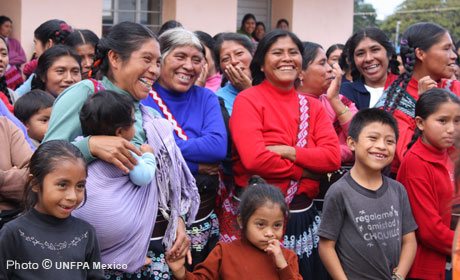Key humanitarian results 2023

Women assisted to deliver babies safely in UNFPA-supported facilities

Adolescents and youth (10-24) reached with SRH services

People reached with Family Planning Services in UNFPA-supported facilities

People reached with SRH information and awareness activities in person

People reached with GBV prevention, mitigation and response activities

People reached with SRH services

Dignity kits and/or other Non-Food Items distributed

Safe Spaces for women and girls, supported by UNFPA

Health facilities supported by UNFPA

